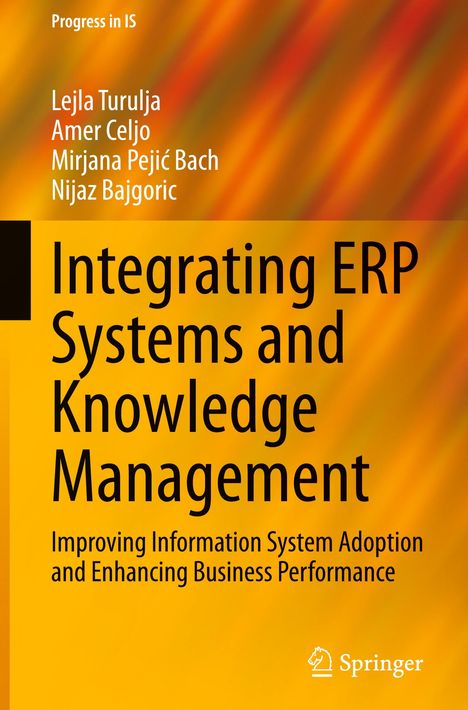Lejla Turulja: Integrating ERP Systems and Knowledge Management, Gebunden
Integrating ERP Systems and Knowledge Management
- Improving Information System Adoption and Enhancing Business Performance
(soweit verfügbar beim Lieferanten)
- Verlag:
- Springer, 12/2024
- Einband:
- Gebunden
- Sprache:
- Englisch
- ISBN-13:
- 9783031689215
- Artikelnummer:
- 12130420
- Umfang:
- 164 Seiten
- Gewicht:
- 416 g
- Maße:
- 241 x 160 mm
- Stärke:
- 15 mm
- Erscheinungstermin:
- 6.12.2024
- Hinweis
-
Achtung: Artikel ist nicht in deutscher Sprache!
Klappentext
This book combines the Technology Acceptance Model (TAM) and empirical analysis to investigate the adoption of integrated enterprise business information systems (ISs). TAM has been used extensively in the study of ERP acceptance as well as factors in the success or failure of ERP. To date, the adoption of information systems has been studied using various approaches, including Theory of Reasoned Action (TRA) and Theory of Planned Behaviour (TPB), both of which have roots in cognitive psychology (Nicolas et al., 2008). Even though these models have been used in research, the TAM has succeeded in capturing the attention of the information systems community. The book also analyses Knowledge Management Systems (KMSs), illustrating their function as information technologies for storing, improving and distributing intra- and intercompany knowledge. Knowledge management systems are presented as likely the most debated and polemicized topic in the field of knowledge management. Even though these systems are not a crucial aspect of knowledge management, it is evident that all major players in the ERP industry have cloud- and installation-based KMS solutions that they integrate with their ERP modules.
After discussing and analysing these topics, the book illustrates how the respective systems can impact business processes and performance. Given its scope, it appeals not only to researchers, but also to practitioners working in these areas of IT.


